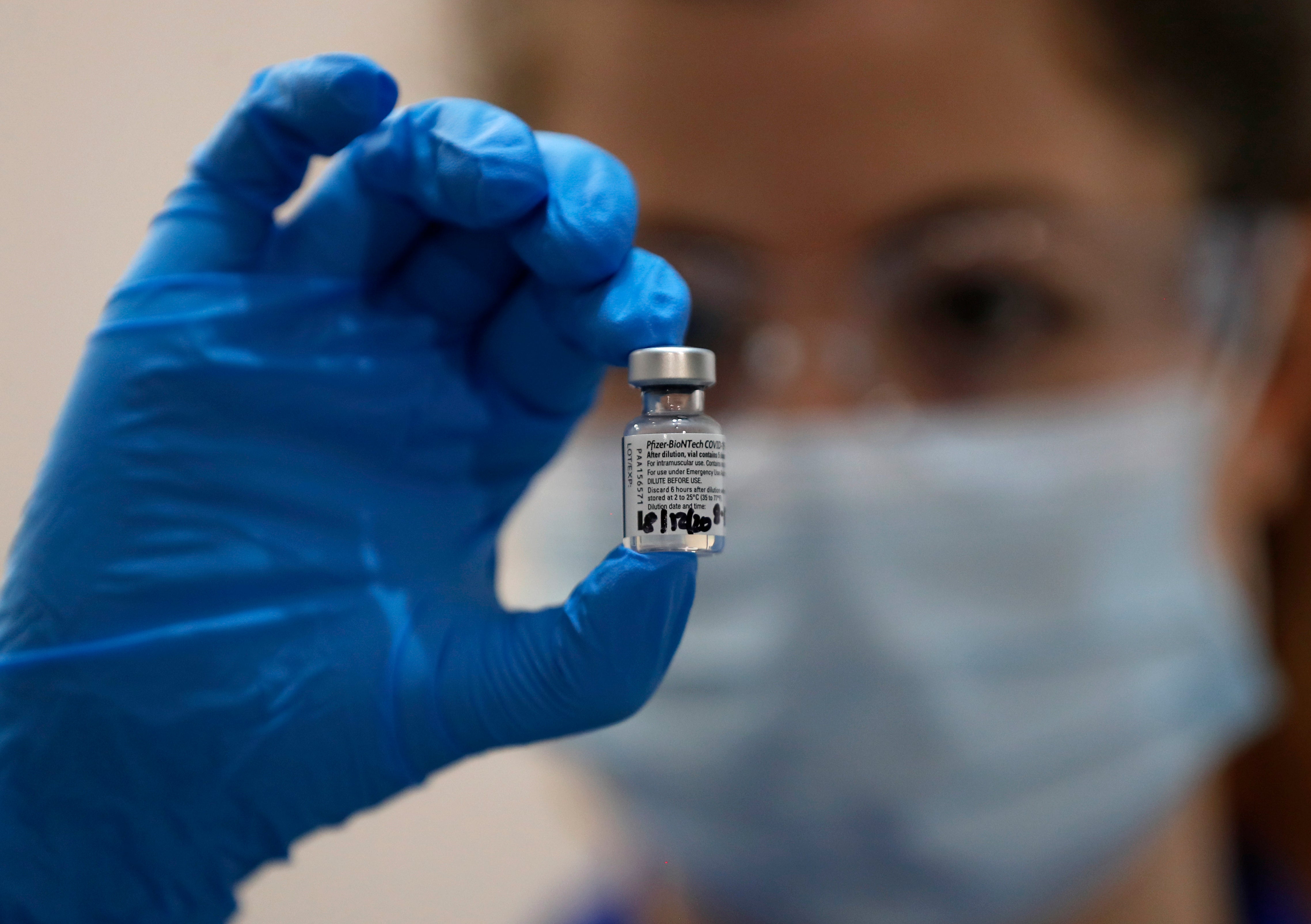EXPLAINER: Allergic reactions to vaccines rare, short-lived
Vaccines can sometimes cause allergic reactions, but they are usually rare and short-lived

Your support helps us to tell the story
From reproductive rights to climate change to Big Tech, The Independent is on the ground when the story is developing. Whether it's investigating the financials of Elon Musk's pro-Trump PAC or producing our latest documentary, 'The A Word', which shines a light on the American women fighting for reproductive rights, we know how important it is to parse out the facts from the messaging.
At such a critical moment in US history, we need reporters on the ground. Your donation allows us to keep sending journalists to speak to both sides of the story.
The Independent is trusted by Americans across the entire political spectrum. And unlike many other quality news outlets, we choose not to lock Americans out of our reporting and analysis with paywalls. We believe quality journalism should be available to everyone, paid for by those who can afford it.
Your support makes all the difference.Vaccines can sometimes cause allergic reactions but they are usually rare and short-lived.
British regulators are looking into reports of allergic reactions in two people who received the new Pfizer COVID-19 vaccine Tuesday, the first day of a vaccination program. In the meantime, they're telling people to skip the vaccine if they've had a history of serious allergic reactions.
A look at allergic reactions to vaccines:
HOW OFTEN DO THEY HAPPEN?
Allergic reactions can occur with numerous vaccines and experts say they are not unexpected.
In the Pfizer-BioNTech study of 42,000 people, the rate was about the same in those who got the coronavirus vaccine versus those who got a dummy shot. U.S. Food and Drug Administration reviewers who examined the study's safety data found that 137 — or 0.63% — of vaccine recipients reported symptoms suggestive of an allergic reaction, compared to 111 — or 0.51% — in the placebo group.
A 2015 study in the U.S. examining the rate of anaphylaxis — a severe, life-threatening allergic reaction — found that it occurred about once per every million vaccine doses. The study evaluated children and adults who got vaccines against numerous diseases, including polio, measles and meningitis.
“For the general population this does not mean that they would need to be anxious about receiving the vaccination," said Stephen Evans, a vaccines expert at the London School of Hygiene and Tropical Medicine.
He noted that even common foods can provoke severe allergic reactions.
WHY DO THESE REACTIONS HAPPEN?
Scientists say people can be sensitive to components in the shot, like gelatin or egg protein, or to the vaccine itself. People with egg allergies are sometimes advised not to get the flu shot, since that vaccine is mostly grown in chicken eggs.
Common symptoms of an allergic reaction include a rash, skin irritation, coughing or trouble breathing.
The exact ingredients used in Pfizer's new COVID-19 vaccine are proprietary and are not publicly disclosed. The vaccine uses a new technology, and is coated in lipid nanoparticles, which have been used in drugs.
WHAT ARE OTHER SIDE EFFECTS?
Typical side effects for many vaccines include things like a sore arm from the shot, fever and muscle aches. In the Pfizer study, participants also reported fatigue, headache and chills.
More serious side effects are reported to regulators or health officials for further investigation. But it can often take time to determine if the vaccine caused the side effect or if the person just coincidentally received the shot before becoming ill.